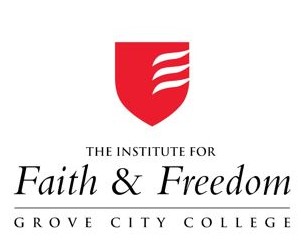As Religious Affiliation Declines, Why Do Believers Still Control Congress?

In recent years, the percentage of Americans who describe themselves as religiously “unaffiliated” has radically increased, even while Christian believers maintain their disproportionate domination of the United States Congress.
In 2007, only 16% of the public failed to identify with a specific religious faith but that number has now nearly doubled to 29%. At the same time, the proportion of Christians elected to the House and Senate has barely budged: from 91% in Reagan’s America of 1980, to 88% in the new Congress that just took office.
These figures (compiled by the Pew Research Center based on surveys by Congressional Quarterly Roll Call) indicate an anomalous situation that raises a number of uncomfortable questions. Does the predominance of self-proclaimed Christians indicate a persistent prejudice against unbelievers? Or does the preference for the conventionally religious reflect a lingering, widespread, under-estimated respect for faith-based commitment among big majorities of American voters?
It’s worth noting that all three of the major religious groupings are substantially over-represented on today’s Capitol Hill. Protestants represent only 40% of American adults in the most recent figures, but they hold a big majority—57%—of the current seats in the House and Senate. Catholics have increased their representation in recent years, with 28% of the members of Congress, but only 20% of the national population. Jews also enjoy disproportionate numbers among our elected leadership, with 33 representatives in the national legislature (6%) with just 2% of the Republic’s overall populace.
In fact, the Jewish participation in Congress has decreased substantially since its recent peak in 2009 (with 45 seats), reflecting, perhaps, the worrisome re-emergence of antisemitic attitudes reported by many Jewish defense organizations and monitors of reported hate crimes. If nothing else, those recent fears may have served to discourage potential Jewish candidates reluctant to expose their families to ancient hatreds, even if such bigotry continues to flourish most visibly on the fringes of both right and left.
Other minority religions—Islam, Hinduism and Buddhism—continue to win representation closely in line with their overall proportion of the population (approximately 1% each), with Congressional delegations now numbering three Muslims, and two each for Buddhists and Hindus.
The unaffiliated remain the only major segment of the public with radical under-representation, with only one member of either House or Senate (Senator Kyrsten Sinema, the newly-minted Independent from Arizona) to reflect the nearly 30% of the populace that describes itself in those terms. Nineteen other senators and congressmen declined to state any specific affiliation, or lack thereof, when questioned by CQ Roll Call in gathering this information, amounting to just under 4% of the Congress. This response may have expressed a visceral “none of your damn business” attitude, or else a simple calculation that any public identification as atheist, agnostic or non-believer could only do political damage to a politician in most districts across the country.
This reaction reflects the obvious fact that despite the increasing ranks of the unaffiliated, a commanding majority (more than two-thirds) of American adults continue to identify with one denomination or another. This doesn’t mean that all those people feel deeply committed to traditional doctrine, or regularly attend religious services. But it does suggest that those who pretend to be more religious than they actually are will always far outnumber those few embarrassed but devout souls who try to downplay or hide their actual faith commitments.
In that regard, religious identification will commonly help a candidate more than it could harm or handicap that politician. Even among the tens of millions of unaffiliated voters, it’s hard to imagine many non-believers who would oppose a politician simply because of that office seeker’s connection to one church or another. For one thing, unaffiliated voters are definitionally less concerned with theological issues, and probably less aware of any given candidate’s personal faith background, than are their more religious neighbors.
An instructive analogy involves the tendency of all politicians to feel instinctually, inevitably impelled to portray themselves as deeply committed to their spouses and families, despite the fact that single, divorced and widowed people now comprise a clear majority (55%) of the adult population. Even if your own experience with marriage is non-existent or nightmarish, the ideal of a healthy family life still strikes most people as a good thing, and indicative of a candidate’s stability and decency. Even in campaigns for lesser offices like county commission or school boards, your mailbox will regularly be stuffed with mailings that show photos of an office-seeker closely surrounded by his confidently smiling kin.
By the same token, even for non-believers whose personal faith experiences may have been limited or unpleasant, there’s still a deep-seated tendency to respect, or even admire, that dwindling segment of the community that shows the discipline and commitment to fill the pews every week. Even if the church you attend may be controversial – think Barack Obama in 2008 or Mitt Romney four years later – candidates won’t try to hide their participation or minimize their involvement in religious institutions.
Among the rising numbers of Americans who never attend church or synagogue, the majority will still cherish memories of grandparents who probably did. The over-representation of religious believers in Congress doesn’t demonstrate a tendency for voters to back candidates who share their own specific faith commitments, but rather the deep-seated suspicion that religion in general may be a good thing for candidates, and for their country.





















